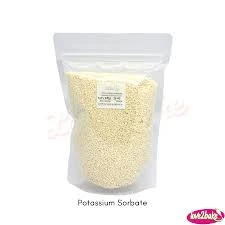
e201 preservative
The Role of E201 Preservative in Food Safety and Preservation
In the modern culinary landscape, the preservation of food is pivotal in ensuring safety, extending shelf life, and maintaining flavor. Among the myriad of preservatives used globally, E201, more commonly known as sodium sorbate, stands out for its effectiveness and relatively low toxicity. This article delves into the role of E201 as a food preservative, its benefits, and considerations surrounding its use.
What is E201?
E201, or sodium sorbate, is derived from sorbic acid, which is a naturally occurring compound found in various berries. It is widely used in the food industry for its antimicrobial properties. Sodium sorbate is effective against a broad range of molds, yeasts, and bacteria, making it a popular choice for products that are prone to spoilage. Its ability to inhibit the growth of these microorganisms helps maintain the quality and safety of food items, particularly those with high moisture content.
Applications of E201
E201 is commonly found in a variety of food products, including baked goods, dairy products, beverages, and canned foods. Its application varies across products; for instance, in the baking industry, it helps prevent mold growth, thus extending the freshness of bread and pastries. In dairy products, it is used to inhibit spoilage caused by microorganisms. Moreover, E201 is utilized in certain fruit juices and wine to prevent fermentation that could lead to off-flavors or spoilage.
In addition to its roles in food preservation, E201 is also employed in the cosmetic and pharmaceutical industries. It is used in creams and ointments to inhibit microbial growth, thereby enhancing product stability and safety.
Benefits of E201
e201 preservative

One of the significant advantages of using E201 is its effectiveness at low concentrations. This means that only a small amount is needed to achieve the desired preservative effect, which contributes to food safety without significantly altering the taste or texture of products. Furthermore, sodium sorbate is considered safe for consumption, and regulatory bodies, including the Food and Drug Administration (FDA) and the European Food Safety Authority (EFSA), have established acceptable daily intake levels for its use in food products.
Another benefit of E201 is its versatility. It can be incorporated into various food matrices, making it a convenient option for manufacturers. Consumers also appreciate the extended shelf life that comes with products containing E201, reducing food waste and promoting sustainability.
Considerations and Safety
While E201 is regarded as safe, there are some considerations that both manufacturers and consumers should be aware of. Some individuals may have sensitivities to sodium sorbate, particularly those with allergies or asthma. It is crucial for consumers to read food labels carefully if they have such sensitivities.
Moreover, the use of preservatives like E201 may raise concerns regarding the consumption of processed foods. Some health advocates argue for a more natural approach to food preservation, promoting fresh ingredients and minimal processing. However, it is essential to recognize that preservatives play a vital role in food safety, particularly in preventing foodborne illnesses caused by spoilage and pathogenic microorganisms.
Conclusion
In summary, E201 preservative, or sodium sorbate, plays a significant role in the food industry by enhancing food safety and extending the shelf life of various products. Its effectiveness against molds and yeasts, coupled with its low toxicity, makes it a favored choice among food manufacturers. While it is essential for consumers to be aware of potential sensitivities and the role of preservatives in processed foods, the benefits of E201 in maintaining food quality cannot be overlooked. As the food landscape continues to evolve, the balance between preservation, safety, and consumer health remains paramount for both manufacturers and consumers alike.
-
Why Glacial Acetic Acid Food Grade Is Essential in FlavorNewsMay.26,2025
-
Surging Export Growth of Food Additives in ChinaNewsMay.26,2025
-
How Ammonium Nitrate Fertilizer Boosts Crop YieldsNewsMay.26,2025
-
How 1,2,3-Benzotriazole Shields Plastics from UV DegradationNewsMay.26,2025
-
Cyanide in Gold Mining: Protecting People and the PlanetNewsMay.26,2025
-
Aluminum Hydroxide in Modern Sunscreen FormulationsNewsMay.26,2025
-
Understanding Synthetic Rubber OptionsNewsApr.27,2025
Hebei Tenger Chemical Technology Co., Ltd. focuses on the chemical industry and is committed to the export service of chemical raw materials.
-

view more DiethanolisopropanolamineIn the ever-growing field of chemical solutions, diethanolisopropanolamine (DEIPA) stands out as a versatile and important compound. Due to its unique chemical structure and properties, DEIPA is of interest to various industries including construction, personal care, and agriculture. -

view more TriisopropanolamineTriisopropanolamine (TIPA) alkanol amine substance, is a kind of alcohol amine compound with amino and alcohol hydroxyl, and because of its molecules contains both amino and hydroxyl. -

view more Tetramethyl Thiuram DisulfideTetramethyl thiuram disulfide, also known as TMTD, is a white to light-yellow powder with a distinct sulfur-like odor. It is soluble in organic solvents such as benzene, acetone, and ethyl acetate, making it highly versatile for use in different formulations. TMTD is known for its excellent vulcanization acceleration properties, which makes it a key ingredient in the production of rubber products. Additionally, it acts as an effective fungicide and bactericide, making it valuable in agricultural applications. Its high purity and stability ensure consistent performance, making it a preferred choice for manufacturers across various industries.











